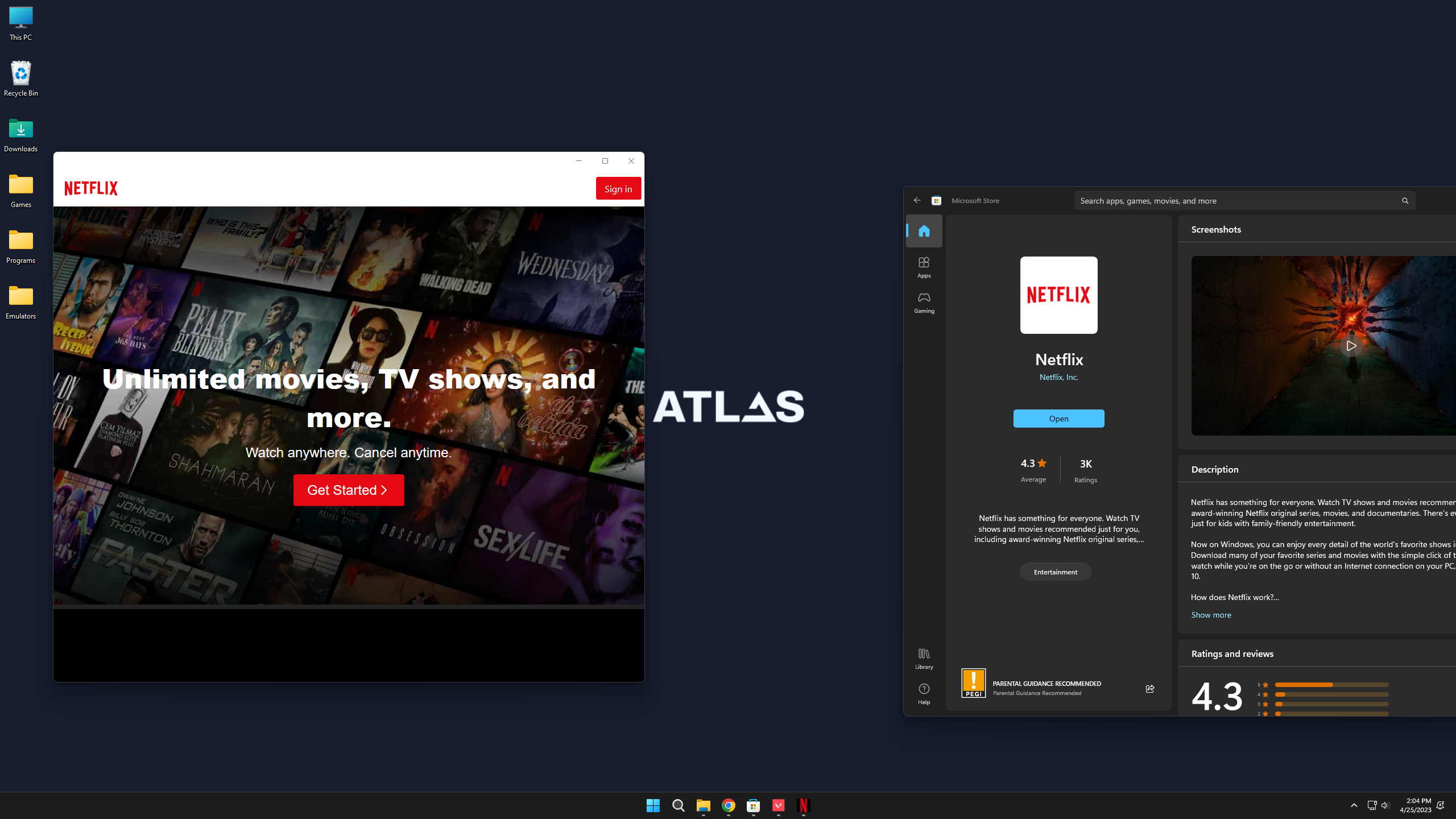Atlas OS Windows 11 Playbook 2025: A Comprehensive Guide
Atlas OS Windows 11 Playbook 2025: A Comprehensive Guide
Related Articles: Atlas OS Windows 11 Playbook 2025: A Comprehensive Guide
Introduction
With enthusiasm, let’s navigate through the intriguing topic related to Atlas OS Windows 11 Playbook 2025: A Comprehensive Guide. Let’s weave interesting information and offer fresh perspectives to the readers.
Table of Content
Atlas OS Windows 11 Playbook 2025: A Comprehensive Guide
![How to Install Atlas OS in Windows 11 [Guide]](https://cdn.windowsreport.com/wp-content/uploads/2024/02/atlasos-windows11-7.jpg)
Introduction
Atlas OS Windows 11 Playbook 2025 serves as a comprehensive guide for organizations seeking to navigate the complexities of deploying and managing Windows 11 in their environments. It provides a roadmap for successful implementation, addressing key considerations, best practices, and future-proofing strategies.
Key Considerations
Hardware Requirements:
Windows 11 has specific hardware requirements, including TPM 2.0, Secure Boot, and a minimum amount of RAM and storage. Organizations must assess their existing infrastructure and determine if upgrades or replacements are necessary.
Compatibility:
Ensuring compatibility with existing applications and devices is crucial. Organizations should conduct thorough testing to identify potential compatibility issues and develop mitigation strategies.
Deployment Options:
Windows 11 can be deployed using various methods, including Windows Update, Windows Deployment Services, and third-party tools. Organizations must select the most appropriate method based on their size, infrastructure, and deployment timeline.
Security Enhancements:
Windows 11 introduces several new security features, such as Virtualization-based Security (VBS) and Credential Guard. Organizations must understand these enhancements and configure them appropriately to protect their systems.
Management Tools:
Windows 11 offers enhanced management tools, such as Windows Autopilot and Microsoft Endpoint Manager. Organizations should leverage these tools to streamline deployment, configuration, and ongoing management.
Best Practices
Phased Deployment:
To minimize disruption, organizations should consider a phased deployment approach, rolling out Windows 11 to a pilot group before deploying it organization-wide.
Communication and Training:
Clear communication and thorough training are essential to ensure user adoption and minimize resistance. Organizations should provide users with ample information about the benefits and changes associated with Windows 11.
Documentation:
Comprehensive documentation of the deployment process, including hardware requirements, compatibility testing results, and security configurations, is crucial for future reference and troubleshooting.
Future-Proofing Strategies
Cloud Integration:
Integrating Windows 11 with cloud services, such as Microsoft Azure, can enhance security, flexibility, and cost-effectiveness. Organizations should explore cloud-based management and security solutions.
Zero Trust Architecture:
Adopting a Zero Trust architecture, which assumes no implicit trust within the network, is essential to protect against evolving cybersecurity threats. Windows 11 provides support for Zero Trust principles.
Security Automation:
Leveraging security automation tools can help organizations streamline incident response, detect and mitigate threats, and improve overall security posture.
FAQs
Q: What are the benefits of deploying Windows 11?
A: Windows 11 offers improved security, enhanced productivity features, and a modernized user interface.
Q: How can I ensure a successful deployment of Windows 11?
A: Follow the best practices outlined in this playbook, including phased deployment, communication, and training.
Q: What are the key security considerations for Windows 11?
A: Virtualization-based Security, Credential Guard, and Zero Trust architecture are crucial for protecting Windows 11 environments.
Tips
Test Thoroughly:
Conduct rigorous testing to identify and resolve compatibility issues before deployment.
Use Management Tools:
Leverage Windows Autopilot and Microsoft Endpoint Manager to automate deployment and streamline management.
Monitor Performance:
Continuously monitor the performance of Windows 11 deployments to identify and address any issues promptly.
Stay Informed:
Stay abreast of Microsoft updates and security advisories to ensure the latest protections and enhancements are implemented.
Conclusion
Atlas OS Windows 11 Playbook 2025 provides a comprehensive guide to help organizations navigate the complexities of Windows 11 deployment and management. By following the recommendations outlined in this playbook, organizations can ensure a successful transition, enhance security, improve productivity, and future-proof their IT environments.
![How to Install Atlas OS in Windows 11 [Guide]](https://cdn.windowsreport.com/wp-content/uploads/2024/02/atlasos-windows11-9.jpg)

![How to Install Atlas OS in Windows 11 [Guide]](https://cdn.windowsreport.com/wp-content/uploads/2024/02/atlasos-windows11-1.jpg)





Closure
Thus, we hope this article has provided valuable insights into Atlas OS Windows 11 Playbook 2025: A Comprehensive Guide. We hope you find this article informative and beneficial. See you in our next article!